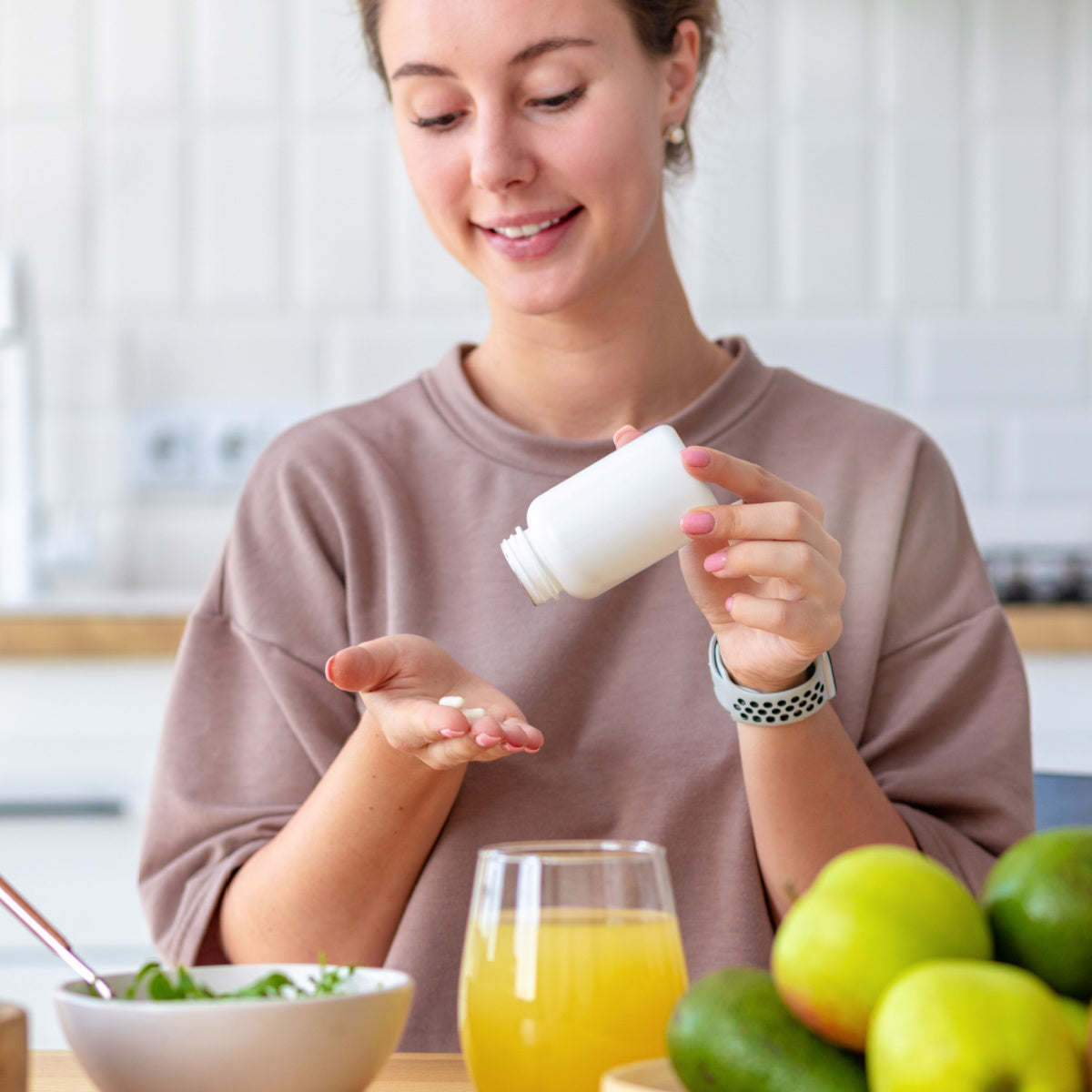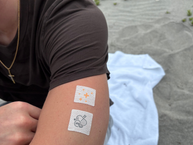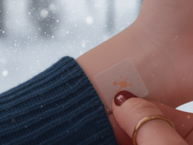Summer fun is something that many of us look forward to year-round, but it’s easier to take advantage of all that summer has to offer when you’re at your best. That can include being well-nourished with all of the essential vitamins and minerals you need.
A well-rounded diet can certainly include all of the essential nutrients, but there are many reasons why people can fall short. Having summer activities to participate in, while often maintaining regular household or work duties, can leave us feeling busy, and that can make nutrition take a hit. Vitamins A, C, D, and E are four vitamins that are critical for optimal summer health, so it’s worth watching levels of them. Vitamin Patches by PatchAid can help fill in gaps, provided your healthcare provider agrees.*
Vitamin A
Vitamin A is a fat-soluble vitamin. It’s necessary for normal night vision, so you might notice a deficiency when the sun goes down and you’re having trouble seeing your friends and family nearby. Vitamin A is also needed for brain health, normal immune function, and skin health.
You can get vitamin A from a variety of foods. The beta-carotene form of vitamin A is in plant-based foods, especially orange and green fruits and vegetables. Carrots, winter squash, sweet potatoes, pumpkin, kale, spinach, collard greens, and cantaloupe are all sources. Sources of vitamin A in animal-based foods include beef liver, butter, and dairy products.
The recommendation for most healthy adults is around 700 to 900 micrograms daily. The Multivitamin Plus Patch by PatchAid has vitamin A in the form of beta-carotene. This form is considered safer as a supplement.*
Vitamin C
Many people know vitamin C as an antioxidant vitamin, but it has many more roles in the body. For example, it’s crucial for iron absorption from plant-based sources, and that’s necessary for healthy red blood cell production. Vitamin C is also needed for normal production of collagen, which is a structural protein in skin, joints, tendons, blood vessels, cardiac muscle, and even bone structure.
You can get vitamin C from many fruits and vegetables. Some good fruit sources include strawberries, raspberries, oranges, grapefruit, tangerines, kiwi, mango, pineapple, and cantaloupe. Vegetables with vitamin C include tomatoes, bell peppers, onions, leafy green vegetables, cauliflower, and potatoes.
You may be getting less vitamin C in the summer if you’re eating a lot of processed meals, or if you’ve been on the go a lot and haven’t had a chance to purchase fresh fruits and vegetables. Some people believe having more vitamin C when they have a cold can help support a stronger immune response.
Most people should get 90 mg of vitamin C daily. The Vitamin C Plus Patch by PatchAid has vitamin C from acerola cherries, as well as from rosehip, which is one of the most concentrated sources of vitamin C known.. It also has citrus bioflavonoids, which have possible roles in heart health.* The patch contains rutin, which is a flavonoid with antibacterial properties that is found in buckwheat, raspberries, and asparagus.
Vitamin E
Vitamin E is another fat-soluble vitamin. It is needed for heart health. It’s also an antioxidant, which means it helps prevent damage to your cells from chemicals called free radicals.* Vitamin E supports normal immune function.* The most common form in the diet is alpha-tocopherol.
You can get vitamin E from foods with healthy fats. Examples include wheat germ, avocados, nuts, seeds, and canola oil. Egg yolks also have vitamin E. You may need more if you eat a high-fat diet, even if you eat healthy fats. If you’re not getting enough, a supplement can help. The Multivitamin Plus Patch by PatchAid contains vitamin E.*
Vitamin D
Vitamin D is another fat-soluble vitamin. It’s needed for normal calcium absorption and regulation, and is critical in bone health.* Vitamin D is also necessary for normal immune function and mood, as well as to support breast and prostate health.*
The most common source of vitamin D in the American diet is vitamin D-fortified milk. Other fortified foods include some yogurt and cheese, non-dairy milk substitutes, orange juice, and breakfast cereals. Vitamin D is naturally found in egg yolks and fatty fish.
Vitamin D is different from other nutrients because your body can make it when UV radiation from the sun hits your skin. However, there are limits, including for reasons such as older age, darker skin, use of sunscreen, and wearing clothes that cover your skin when you go outside. Surprisingly, a significant proportion of the population is vitamin D-deficient.
Your needs for vitamin D increase if you are pregnant or nursing, especially as the baby’s bones are forming.
The PatchAid Vitamin D3 with Calcium Topical Patch and the PatchAid Vitamin D3 and K2 Topical Patch are sources of vitamin D. They may support bone health as well as normal mood, proper muscle relaxation, and normal blood clotting.
PatchAid Patches are easy to use. You can apply them to a clean, dry, hairless area of skin and leave them on for up to 8 hours. You can use them overnight or during the day. They are flexible and sweatproof, so you can keep up your summer workouts while using PatchAid Patches. They’re even okay to use in the shower or while swimming, and you can use multiple patches at once.
Staying nourished is always important, and it’s just as important in the summer when you may be especially busy or active. The Vitamin D3 with Calcium, Vitamin D3 and K2, Vitamin C Plus, and Multivitamin Plus with or without iron patches are examples of sources of these important vitamins. They’re in topical patches, so they’re easy to use and don’t require you to swallow anything. Be sure to ask your healthcare provider before using any nutritional supplement.
*The Food and Drug Administration has not evaluated these statements. PatchAid patches are not intended to diagnose, treat, cure or prevent any disease. Anyone with a medical condition should seek the advice of a licensed medical practitioner. Individual results may vary.







